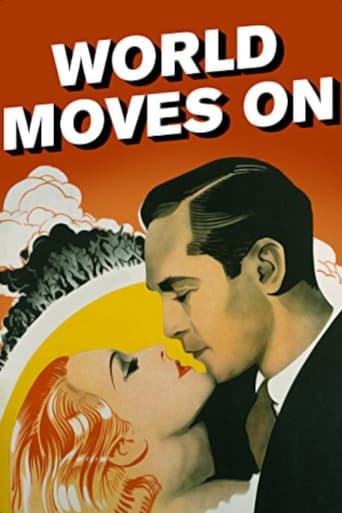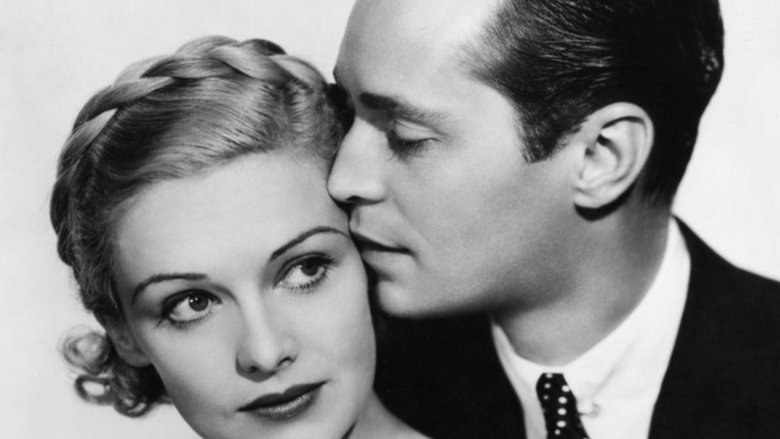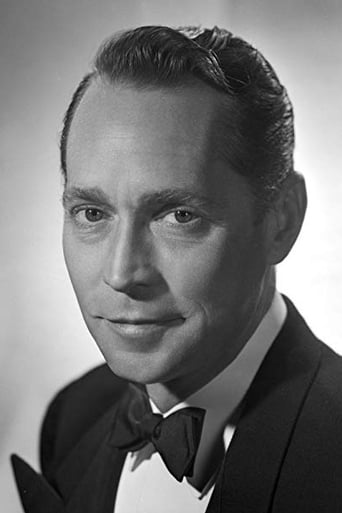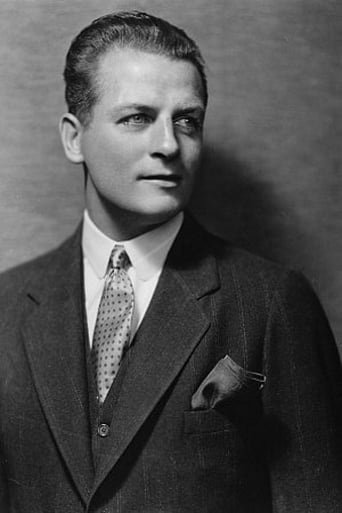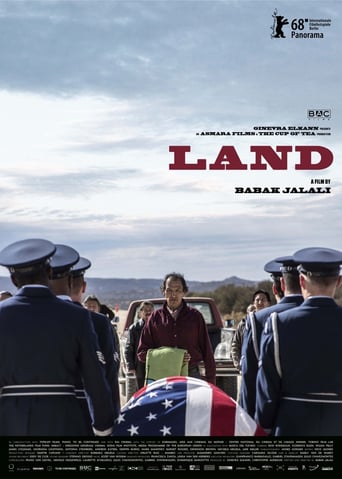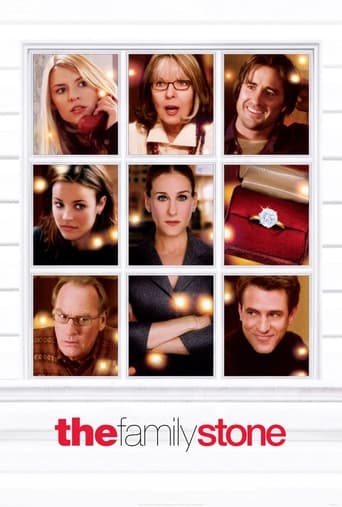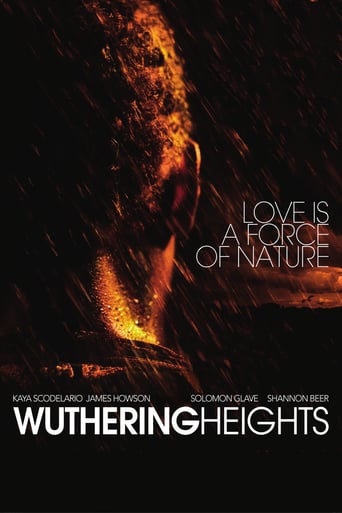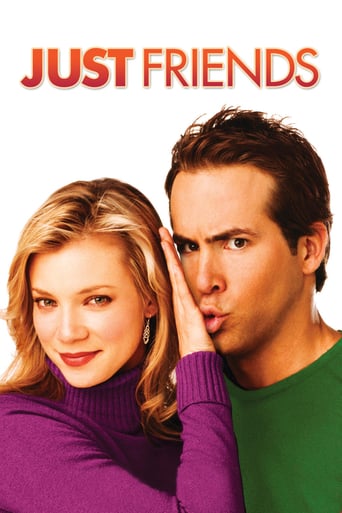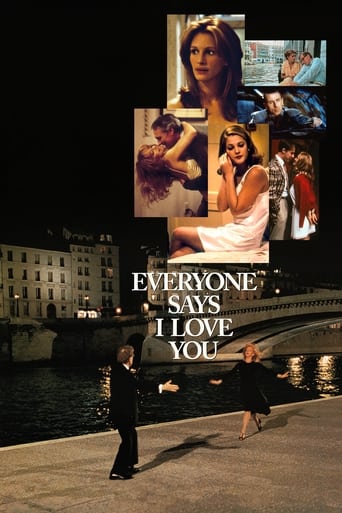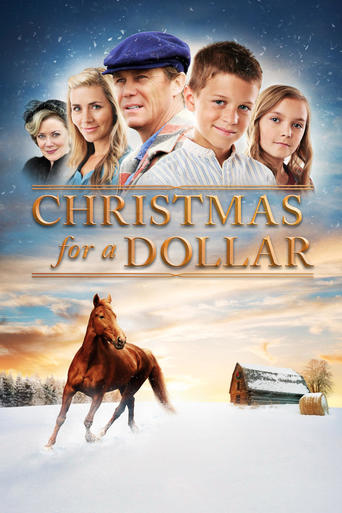The World Moves On (1934)
Two families, cotton merchants in England and America, with branches in France and Prussia swear to stand by each other in a belief that a great business firmly established in four countries will be able to withstand even such another calamity as the Napoleonic Wars from which Europe is slowly recovering. Then many years later, along comes World War One and the years that follow, to test the businesses.
Watch Trailer
Free Trial Channels
Cast


Similar titles
Reviews
Good start, but then it gets ruined
From my favorite movies..
A Disappointing Continuation
The movie turns out to be a little better than the average. Starting from a romantic formula often seen in the cinema, it ends in the most predictable (and somewhat bland) way.
The World Moves On (1934)** (out of 4)Flat look at two families, the Warburtons and the Girards, who are bound by marriage in 1825 and form a business that places parts of the family in England, America and Germany. All is well until WWI breaks out and soon the families are torn on all issues. I've read numerous reports saying that director John Ford never cared for this film and rumor has it that Fox was really hounding him to film screenplays the way they were written and not to go so far off track. Rumor has it that Ford did exactly that here and turned in a pretty lifeless movie just to prove a point to the studio. Of course, this has never been proved to my knowledge but if you watch the film it's easy to see why this might be the case. I've seen dozens of films from the legendary director and there's no question that he's made some duds throughout but THE WORLD MOVES ON should have been a classic but the end result is so lifeless that you can't help but think there was something going on behind the scenes. Ford has always been great at showing patriotism but that's missing here and it plays an important part of the picture. There are many actions scenes scattered throughout but none of them contain any energy and they come across so flat that it seems like they just set the camera up and started shooting without trying to do anything special. This is especially true during some horrendous comedy moments with Stepin Fetchit, which are just so embarrassing that you really wonder what the director was thinking. I know Fetchit appeared in several Ford films and the image that he plays rubs a lot of people the wrong way but no matter how you view it the way the character here is used is just bad. Performances are pretty good from the leads (Franchot Tone, Madeleine Carroll, Reginald Denny) but they're certainly letdown by the direction. The look of the film is quite good and there's a very interesting story here but sadly it just never comes to life. I think with more care there's a classic movie here.
This movie reminds me a bit of the best picture film, "Cavalcade", that was made a year before "The World Moves On". Both stories are set over a very long time period and involve a wealthy family during good times and bad--the bad being WWI. However, there are also a lot of differences--enough that it's well worth seeing both films.The film begins in the early 19th century. At the death of a so-called 'Cotton King', his will is read and it gives amazingly detailed instructions about his estate. To satisfy the conditions of the will, the family must make a business merger and then send its family members to set up a business empire in the major industrialized nations at the time--France, Prussia (later, to make up a large part of Germany), Britain and, of course, the United States. Through the decades, the family ties remain strong--even after there are distinct lines of the new family that speak different languages. The idea is that despite national interests, the family and the company come first. However, this is all complicated 90 years later when WWI arrives. And, surprisingly, the film continues from the end of WWI to the Depression and its impact on the family.The film has excellent production values and clearly was a project that Fox Studio heaped a lot of money on--with lots of fancy sets, an up and coming director (John Ford) and a pretty good cast headed by Franchot Tone and Madeleine Carroll. For the most part, the writing was also first-rate and the film quite enjoyable. There were only a couple things I really disliked about the film. First, subsequent generations of family members are played by the same actors in several cases--as if descendants look EXACTLY like their parents, grandparents or great-grandparents. This is a stupid Hollywood cliché--as this does not happen in real life--even with families where incest is all the rage!! Second, for 'comic relief' for the WWI scenes, Steppin Fetchit is cast--even though he has NOTHING to do with the movie. And no, he does not play the 'black sheep' of the family! He is simply a walking, talking negative racial stereotype that was very popular in the 30s but which makes almost everyone cringe today (and it should). Also, the notion of a need for COMEDY during WWI is brainless and misguided to say the least! What part of 11,000,000 war dead is funny?!Now you should be able to look past these two problem areas with the film and if you stick with it, the movie is pretty amazing for its scope, its very brutal scenes of warfare (some of the most harrowing of the era, in fact) and its rather non-partisan stand--which was quite the rage in the early to mid-1930s--when most Americans had come to accept that this war had no good guys or bad guys--only many victims. Of course, WWII and the rise of Hitlerism in the years following this film would change this attitude considerably. Still, it's a mostly forgotten fact that practically all films about WWI made in America during the 1930s were very critical of the war and took a neutral stance on it--as was also true of many of the films in France (such as "Grand Illusion" and "J'Accuse!") as well as Germany up until the Nazis took control ("Westfront 1918"). Plus, I was amazed that the movie dared to criticize the rise of nationalism and fascism in the 1930s--they were correct, but Hollywood (aside from this film) pretty much ignored this until AFTER WWII had already begun!By the way, you probably could guess that I am a history teacher and film buff--hence all this background material that you might find interesting. And, speaking of this, history teachers should particularly appreciate this well-made film.
In the tradition of Fox Studios' Oscar-winning Cavalcade, The World Moves On covers over one hundred years in the lives of two Louisiana families: The Girards, of French extraction, and the Warburtons, formerly of Manchester. Forming an alliance by marriage in 1825, the families rapidly corner the cotton business in the South. Years later, three of Girard/Warburton sons split up to head business operations in England, France and Germany: as a result, descendants of the original families find themselves fighting on opposite sides during WW I (this episode is similar to a memorable sequence in the 1928 silent Four Sons, which like World Moves On was directed by John Ford). Surviving the war, Richard (Franchot Tone), the last of the descendants becomes a sharkish Wall Street speculator in the 1920s, ultimately losing his fortune in the Wall Street Crash. Bloody but unbowed, Richard and his wife Mary (Madeleine Carroll) cut their losses and return to their ancestral home, to start all over again. Both The World Moves On and the subsequent Fox production Road to Glory rely to a considerable extent upon stock footage from the grim 1931 French antiwar drama Wooden Crosses.
This 1934 movie is largely unknown and considering it was directed by John Ford this may seem surprising .Yet even quite exhaustive surveys of his work either omit references to this movie entirely or else give it only a passing mention.Now that I have seen it I feel that this is not really surprising after all .It is bombastic ,muddled and confused ,with a -for me -unacceptable pacifistic line .It is the product of an isolationist mind set and I found it morally repugnant .Thankfully ,it is not very good and so it is possible to dislike it on artistic grounds as well.In form it is a family or dynastic saga ,split into a number of eras .It opens in 1825 in New Orleans as the family of a dead fabrics baron assemble for the reading of his will .The estate is split between branches of the family in the US -as represented by Franchot Tone -,England ,France and Germany .The rest of the action is this segment consists of Tone killing a ,man in a duel for insulting Madelaine Carroll.She and Tone have a mutual attraction but she is engaged to someone else and the affair is not consummated .The movie then moves forward to Europe immediately before World War 1 .The family gathers for a dynastic wedding .Tone and Carroll re-appear ,both playing descendants of the people they portrayed in the opening section of the movie.There are hints -conveyed by their response to a particular piece of music -that they have some kind of "deja vu" connected with their ancestors previous relationship but this potentially intriguing theme is never pursued .War breaks out and the family splits on national grounds .Tone joins the French Foreign Legion to take up arms against Germany but others respond in less sensible ways.Carroll defies the orders of the government and refuses to make munitions (an act of treason which bizarrely Ford seems to agree with)while a key member of the French side of the family joins the priesthood as a gesture against the war .The last part of the movie takes place in the 1920's .Tone is now a tycoon and an absolute megalomaniac driven by greed and a lust for power.The crash of 1929 sees him reappraise his life and values and take a "peace ,love and understanding ,man" approach to life .There are some good things about the picture .The scenes of wartime action ,without recourse to graphic violence ,do depict the horrors of war well but overall this is a sprawling mess of a movie .The episodic structure and the obvious striving after "significance "allied to a propensity to preach at the audience make it tedious .The last 10 minutes is essentially a lightly dramatised and sententious pacifist tract and as wishy washy as such farragoes of nonsense invariably are .One section is particularly offensive ,It involves newsreel footage of Hitler ,Mussolini and Japanese militarists and the British navy .Now ,Ford was an Anglophobic jerk (albeit one who could be a genius with the right story and actors at his disposal)but surely even a blinkered Irish nutter should have realised that to lump the British in with that bunch of lunatics was over-egging the pudding a tad .That decision was not the product of woolly thinking so much as feeble mindedness-the kind of oaf who thinks owning a U2 album makes them an expert on politics in general and "the troubles"in particular.No it doesn't -it makes you a musical illiterate easily parted from her/his cash by a bunch of pompous bores with guitars The acting is indifferent ,the racial stereotyping in the Stepin Fetchit role is insulting but above all I cannot tolerate a movie that responds to the rise of European and Asian dictators by advocating nonsense like appeasement and lionising treasonable factory ownersThis movie is pernicious tripe

